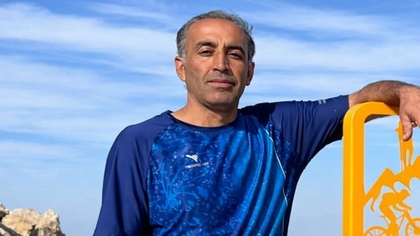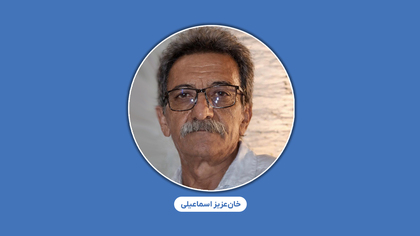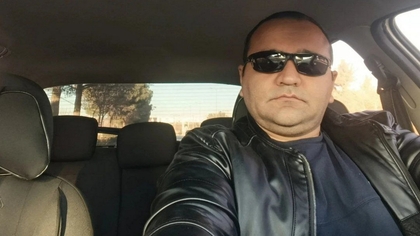Sanandaj; Jina Madress-Gorgi has been charged with "collaborating with hostile states."

In recent days, Jina Madress-Gorgi, a women's rights activist who leads the Center for Reform and Education in Sanandaj, has been accused by the Public and Revolutionary Prosecutor's Office in Sanandaj of "collaborating with hostile states."
In March, the Branch 1 of the Public and Revolutionary Prosecutor's Office in Sanandaj had filed a complaint against this women's rights activist, accusing the officers of the Kurdistan Intelligence Agency of depriving individuals of their freedoms, violating their rights enshrined in the constitution, kidnapping, deliberate assault, and insulting ordinary citizens. The complaint was dismissed, and no pursuit order was issued against the officers of the Intelligence Agency.
On April 29, 2023, Branch 1 of the Public and Revolutionary Prosecutor's Office in Sanandaj, under the leadership of "Alireza Faryabi," had rejected the complaint filed by Ms. Madress-Gorgi due to the lack of sufficient reasons and evidence.
Jina Madress-Gorgi's lawyers had objected to the lack of proper investigations and the disregard for evidence and requested the prosecutor's office to review and address the investigative shortcomings.
On May 10th, Jina Madress-Gorgi was transferred from solitary confinement at the Center for Reform and Education in Sanandaj to a public ward.
During this period of interrogation, she was charged with "spreading falsehoods through interviews with opposition media."
On April 10, 2023, Jina Madress-Gorgi was detained again by security forces in Sanandaj.
Jina Madress-Gorgi, a women's rights activist who had been arrested during the early days of the feminist revolutionary movement, detained, and later released on bail, announced on March 24th through a post on her Instagram page that her charges had changed to "forming a group to overthrow the state."
She stated that she was charged with "forming a group to overthrow the state" and was waiting for her court hearing to defend herself with the assistance of her lawyer. Previously, she had been accused of participating in gatherings against national security and propagating against the system.
This women's rights activist was violently arrested on Thursday, September 21, 2022 by security agents of the Intelligence Agency on Safari Street in Sanandaj. After forty days of detention in Sanandaj's women's prison, she was temporarily released on bail of 100 million tomans. The case's prosecutor later increased her bail to one billion tomans.
Prior to her arrest, she had been summoned and threatened by the Intelligence Agency's forces, warning her that if she participated in protest gatherings in the city of Sanandaj, she would no longer see the sun.
On February 14, 2033, Jina Modares-Gorji, after attending her first court session, wrote on her personal Instagram account: "My court session was held on Sunday, February 12th. On Thursday, when my lawyer, Mr. Abdollahi, had gone to the court for the final review of the case, they realized that my judge had been changed from Mr. Saeedi of Branch 1 of the Revolutionary Court in Sanandaj to the Chief Justice of Sanandaj, Mr. Akbari, with an order from Tehran. The session was held, but Mr. Judge Akbari had not read my case and was just skimming through it. More than being a court session, it was more like advice and analyzing events, at least from their perspective. In the end, he said, 'I will read your case later, but write your defense for "propaganda against the system".' My lawyer and I wrote the defense. Finally, they handed me an amnesty form on which it was written: 'I, ... son/daughter of... with case number... am not remorseful or repentant for the crime I have committed. I pledge not to repeat it and be in line with the goals of the Islamic Republic of Iran (maybe with some minor changes as I don't remember the exact wording).' I did not sign the form because I told the judge that I do not consider myself a criminal to be remorseful and repentant, and according to the law, I am currently an accused, not a convicted. They insisted multiple times that I should sign it because it would be in favor of my case, but I still insisted that I am not a criminal. He said that I have blackened their image. Everything from my reports, writings, acts, photos in exhibitions, and even the titles of books that I suggest for purchase and reading in my bookstore were all in my case. He said that he knows people are going through difficulties and hardships, especially economically, but the solution was not what happened, and if they had handled it differently, we would not have turned into Syria 2. He said he would read the case and issue a verdict based on my defense. Signing the amnesty form is a highly debated issue these days. After my lawyer's explanation, I understood that amnesty is compulsory for those whose sentences have been determined and served a certain period of imprisonment. They have not signed any form and have been released from prison, but for the defendants, it is optional. I think we cannot judge detainees based on whether they sign the form or not. I have seen many whose lives have been and still are in such a way that they cannot tolerate any more pressure and expenses. Mothers who have young children, those who have suffered severe trauma, individuals who fear harassment and abuse (even psychological) in men's prisons, those who have physical illness, depression, and so on – not someone who signs being a failure, a traitor, or an informant; nor someone who doesn't sign being a hero. Let's be cautious of divisions."



